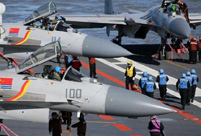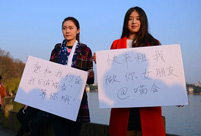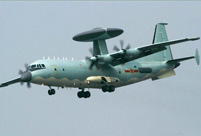

Chinese President Xi Jinping will kick off his state visits to Saudi Arabia, Egypt and Iran. Xi’s visit, in spite of the unprecedented undulation in Middle East, will inject confidence into peace and development of the region, said a commentary under the byline of Zhong Sheng in the People's Daily.
As his first overseas visit in 2016, Xi’s Middle East trip, especially amid the high tension between Saudi Arabia and Iran, will last from January 19 to 23.
Saudi Arabia is China’s largest trading partner and crude oil supplier in the area of West Asia and Africa; Egypt is the first Arab and African country that established diplomatic ties with China whereas Iran is a major Middle East nation with strategic significance, said the article on the linkage between China and the three nations.
As developing nations standing at crucial development stages, both China and Arab states are now striving for national rejuvenation and prosperity, the commentary added.
In order to cement cooperation with Arab states, President Xi proposed to establish a "1+2+3" pattern on Sino-Arab cooperation with energy as the core in 2014. Infrastructure, trade and new tech industries were also identified as major cooperation areas.
China depicted the future of bilateral ties in a new era by releasing a first Arab policy paper recently in commemorating the 60th anniversary of diplomatic ties.
The paper defined the bilateral relations as strategic partnership featuring comprehensive cooperation and common development. It also drew a roadmap for cooperation in politics, economy, trade, social development, cultural exchanges, peace and security.
Middle East is witnessing an unprecedented undulation as it now needs to restructure political landscape, transform economy and society and re-balance the geo-political forces.
Amid such historical moment, China, a permanent member of the UN Security Council, has played a constructive role in settling hot issues without interfering domestic affairs of regional countries, said in the commentary.
“China played its due role as a responsible major power,” the article added.
After China initiated to build the Silk Road Economic Belt and the 21st-century Maritime Silk Road, Middle East countries, many of which situated in the routes, echoed China’s proposal in a positive way.
The win-win cooperation will not only boost economic cooperation and reinforce risk-resistance capability, but also contribute to peace and development of Middle East, the article concluded.
 PLA holds joint air-ground military drill
PLA holds joint air-ground military drill Charming female soldiers on Xisha Islands
Charming female soldiers on Xisha Islands Beautiful skiers wear shorts in snow
Beautiful skiers wear shorts in snow Getting close to the crew on China's aircraft carrier
Getting close to the crew on China's aircraft carrier A beauty's dancing youth
A beauty's dancing youth Chinese stewardess celebrate test flight at Nansha Islands
Chinese stewardess celebrate test flight at Nansha Islands World's first 'underwater skyscraper'
World's first 'underwater skyscraper'  "Rent me as your girlfriend!"
"Rent me as your girlfriend!" Top 10 weapons in the world in 2015
Top 10 weapons in the world in 2015 Top 20 hottest women in the world in 2014
Top 20 hottest women in the world in 2014 Top 10 hardest languages to learn
Top 10 hardest languages to learn 10 Chinese female stars with most beautiful faces
10 Chinese female stars with most beautiful faces China’s Top 10 Unique Bridges, Highways and Roads
China’s Top 10 Unique Bridges, Highways and Roads Visa trap
Visa trap Same-sex, same abuse
Same-sex, same abuse Chinese netizens rank Japan as least-wanted neighbor
Chinese netizens rank Japan as least-wanted neighbor ‘Detective Chinatown’ pays homage to the mystery genre
‘Detective Chinatown’ pays homage to the mystery genreDay|Week